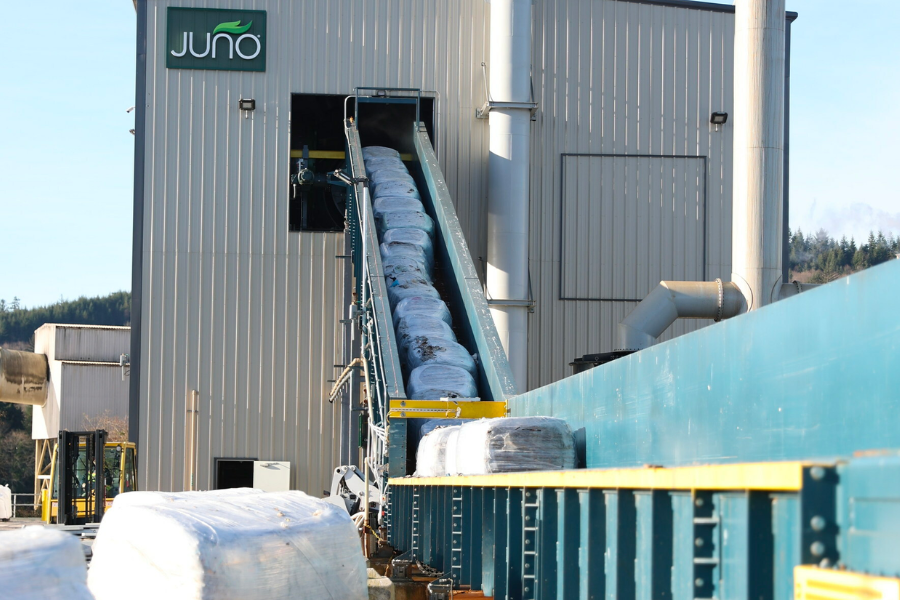
[ad_1]

The president of the Georgia-Pacific subsidiary hopes his firm’s know-how will ultimately handle stagnant recycling charges nationwide. | Courtesy of Georgia-Pacific
Georgia-Pacific’s Juno Technology is testing out plant areas and partnerships by means of a Seattle pilot mission.
The know-how, which targets historically unrecyclable fiber, is being put to make use of in a 12-week pilot mission to recycle materials sourced from King County, Washington that started on Feb. 28, in line with a press release.
Juno makes use of a patented moist waste processing resolution that separates, sanitizes and washes fiber contaminated with meals and different natural particles. It can deal with cups with plastic coatings and paper-based packaging, in addition to divert extra metals and plastics and ship them again into the recycling system. Organics are became biogas.
Christer Henriksson, president of Juno, advised Resource Recycling, “We take whatever falls between the cracks and we then get another stab at it.”
King County, which sits within the coronary heart of the Seattle metro space, estimated that regardless of “robust curbside recycling programs,” over 600,000 tons of recyclable materials find yourself in landfills yearly. The Solid Waste Division is testing how Juno may assist scale back that quantity, the press launch famous.
Juno has been running a plant on three acres in Toledo, Ore. since 2021, Henriksson stated, near the Georgia-Pacific containerboard facility in the identical city. Since then, Juno has tripled landfill diversion charges in Toledo, the press launch famous.
The facility has an annual capability of 60,000 to 70,000 tons. King County is sending about 1,000 whole tons of fabric to the ability over the 12-week interval.
Pat McLaughlin, King County’s Solid Waste Division director, stated within the press launch that “mixed waste processing, alongside other waste reduction, prevention and recycling initiatives, has the potential to be an important piece of our long-term plans to reduce the amount of garbage going to the landfill and lower our carbon footprint here in King County.”
For Juno, the pilot may also assist the corporate “properly decide on a future plant, potentially, for King County that could then help them divert up to about 90% away from landfills,” Henriksson stated.
Looking on the greater image
Recycling charges within the U.S. have largely been stagnant over the previous twenty years, Henriksson stated, and he thinks Juno can assist change that.
“The average recycling rate in the U.S. is in the low 30s, so a good community can hit about 50%,” Henriksson stated. “With something like Juno, we could then process the other 50% and recycle it, diverting up to about 90%, so it would be a big needle mover.”
There’s plenty of curiosity in Juno proper now, Henriksson famous, so the corporate is concentrating on communities “that are really interested in diverting waste from landfill” for testing and partnerships.
Juno can also be wanting outdoors the U.S. and Canada on the United Kingdom and Australia as potential areas of growth. The know-how may be arrange in a standalone facility or built-in into present services, Henriksson stated.
“Ideally we want to locate future Juno facilities near the sources of waste so you minimize waste transportation,” he stated. “Juno plants could be located where you actually have transfer stations in cities.”
Adding on to present switch stations would additionally decrease disruption and permit haulers to maintain their similar routes and infrastructure, Henriksson added.
“We can’t wait to see this rolled out not just in the United States, but also globally,” he stated.
More tales about fiber
[adinserter block=”4″]
[ad_2]
Source link